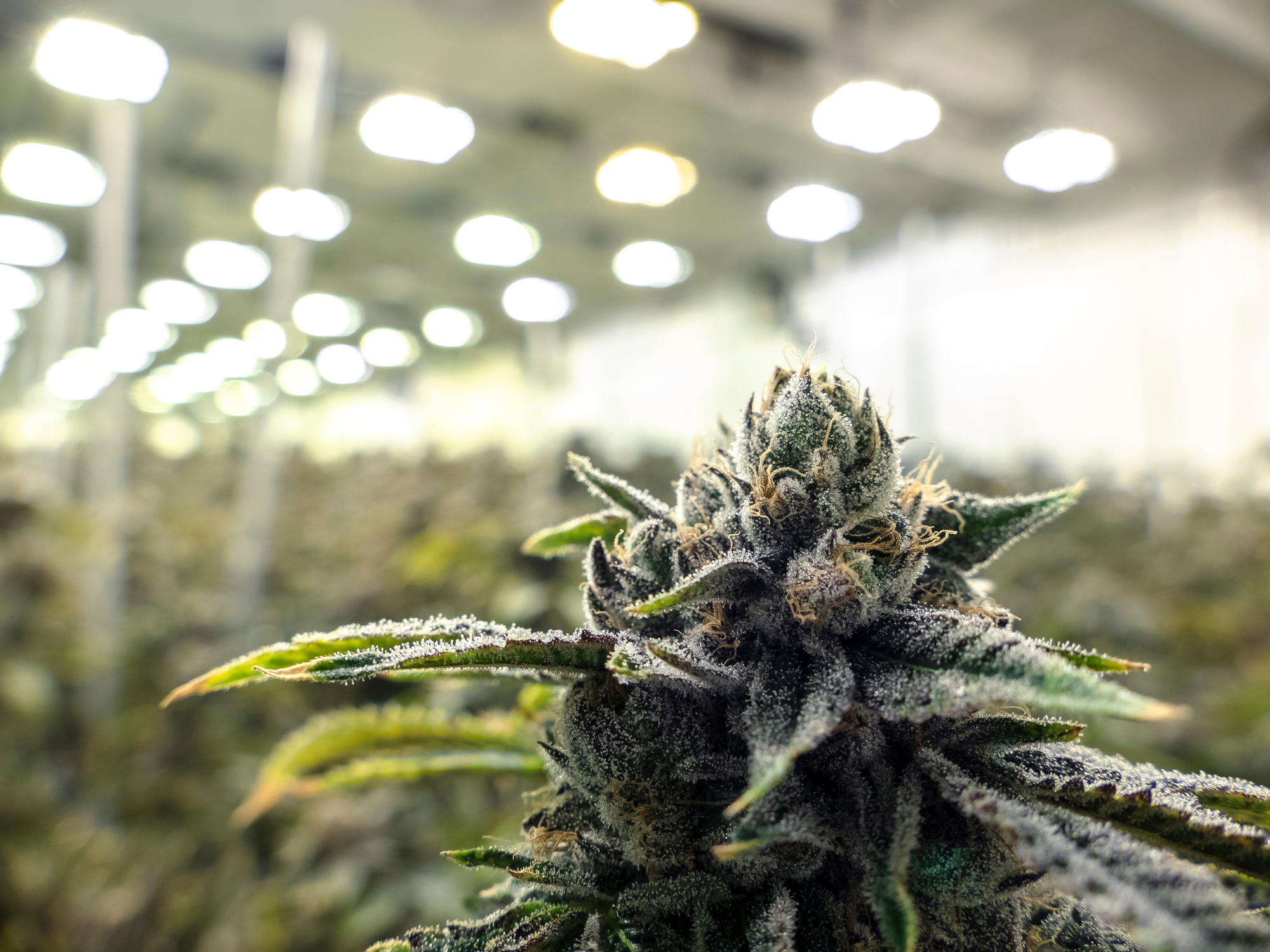

Does Weed Have Nicotine?
People are always talking about how marijuana and nicotine interact. It's a hot topic among fans, researchers, and the folks making the rules.
With more people lighting up nowadays, it's super important to get the lowdown on what's happening when these substances mix. So, let's dive into the whole nicotine-in-weed thing and clear up some of those myths and misunderstandings.

A Brief History of Cannabis and Nicotine
Cannabis and nicotine have walked hand in hand through the annals of human history, each with its own rich story. Cannabis has been used for medicinal, spiritual, and recreational purposes for millennia.
Nicotine, on the other hand, is a principal component of tobacco, which has been ingrained in the cultural and economic fabric of societies—albeit with less celebratory connotations.
Amidst the current oral fixations and alternative smoking markets, we see the reunion of these two compounds in modern consumables like blunts and 'spliffs', and unfortunately, a resurgence of nicotine into the cannabis scene.
The Rise of Smoking Tobacco

When European explorers stumbled upon the New World, tobacco's fate worldwide changed big time. Suddenly, there were huge areas growing tobacco like never before.
By the 19th century, practically everyone in Western societies was smoking, and the marketing muscle of the big tobacco companies left a huge mark. They influenced cultures, economies, and public health measures for centuries to come.
Ancient Origins of Cannabis
Cannabis has a long history that stretches across different cultures and places. It started in Central Asia and then made its way all over the world, becoming a common thread in many societies' cultures. It was only in the 20th century, when strict laws kicked in across various countries that cannabis really started to be seen as a controlled substance.
Understanding Nicotine
Before we delineate the relationship between marijuana and nicotine, it is important to understand the latter’s profile.
It is also crucial to study the psychoactive effects of both nicotine and cannabis on respiratory health, as research indicates an independent association between cannabis vaping and persistent symptoms of bronchitis, as well as an increased risk of wheeze, highlighting the importance of examining both substances in the context of their health impacts.
What Is Nicotine?
Nicotine is a potent alkaloid found in the nightshade family of plants (Solanaceae), predominantly in tobacco. It is a psychoactive drug that affects the cardiovascular system and the central nervous system.
When consumed, whether through smoking, vaping, or other means, it has both stimulating and sedative effects, which partly accounts for its highly addictive nature.
The Nicotine Rush
Nicotine is absorbed into the bloodstream through the lining of the mouth, the lungs, or the skin. From there, it rushes to the brain, where it stimulates the release of adrenaline and dopamine — neurotransmitters that regulate mood and form an essential part of the brain's reward system. This 'rush' or 'high' often reported by new cannabis smokers is a result of the initial phase of nicotine's interaction with the brain.
Health Implications of Nicotine
Nicotine by itself is not carcinogenic—that is, it doesn’t cause cancer. However, sharing a vehicle with the toxic compounds in tobacco smoke, it contributes to the catastrophic health risks associated with smoking, such as lung cancer and heart disease. Comparatively, both tobacco smoking and marijuana use are linked to the development of chronic bronchitis, showcasing the respiratory risks associated with each.
Nicotine replacement therapy (NRT) products are available to help with smoking cessation, indicating that while nicotine addiction is challenging, it can be treated.
Dispelling The Myth About Nicotine in Cannabis

Many casual observers and even regular consumers have harbored the belief that marijuana inherently contains nicotine due in part to shared methods of consumption, such as smoking. While dispelling myths about nicotine in cannabis, it's also important to acknowledge adverse psychological reactions as potential health effects of marijuana use.
The Truth About Nicotine in Weed
Marijuana plants do not naturally produce nicotine. The presence of nicotine in marijuana cigarettes (‘joints’) is usually due to the rolling paper or intentional adulteration by the user. The misattribution of nicotine to cannabis might stem from the fact that both substances are commonly inhaled through smoking, creating an associative misconception.
However, it's crucial to understand the health implications of marijuana smoke, which, like tobacco smoke, contains carcinogenic compounds that can lead to chronic bronchitis, respiratory dysfunction, and even the conversion of respiratory cells to a pre-cancerous state, despite the differences in their carcinogenic potential and pharmacological activities.
The Matter of Rolling Papers
Tobacco-based rolling papers are a culprit in adding nicotine to the cannabis smoking experience.
Blunt wraps, for example, are made from tobacco and can contain substantial amounts of nicotine. This presents a risk for individuals who are either unaware of or indifferent to the nicotine content in their rolling papers.
Nicotine in Cannabis Products

The modern cannabis market has not been immune to the stirrings of nicotine. E-cigarettes and vaping have ushered in a new dynamic, with nicotine often playing a leading role in cannabis products. Interestingly, while vaping cannabis with nicotine has become popular, studies suggest that smoking cannabis may present a different set of health effects, including potential respiratory symptoms.
This comparison underscores the importance of understanding the distinct health implications of smoking cannabis versus vaping it with nicotine.
Vaping and E-Cigarettes
The growth of vape culture and the popularity of e-cigarette smoking have facilitated the introduction of nicotine into the marijuana consumption landscape. Many vape oils used with cannabis contain a mix of THC and CBD with varying levels of nicotine, further blurring the line between the two substances. Understanding the cannabis plant and its components is crucial when considering the health effects of vaping, as studies have shown that vaping cannabis is associated with an increased risk of bronchitic symptoms and wheezing, highlighting the importance of distinguishing between the substances being vaped.
Why Add Nicotine to Cannabis?
People mix nicotine into cannabis products for different reasons. Some are looking for a unique buzz or think it boosts the effects.
What’s worrying, though, is the idea that nicotine could make cannabis more addictive, especially for younger people who might think it’s a safer bet than old-school smoking. Discussing the health implications of combining marijuana and tobacco is crucial, as research indicates that adding nicotine to cannabis products can exacerbate respiratory issues, including bronchitic symptoms, wheezing, and shortness of breath in young adults, highlighting the comparative effects on respiratory health.
Health Effects of Nicotine in Cannabis: Lung Cancer Focus
When nicotine is introduced to cannabis consumption, the health effects shift in accordance. The combination of nicotine with THC can lead to a different set of outcomes than consuming cannabis alone.
The effects of marijuana on health, especially when compared to tobacco, reveal significant concerns. Marijuana smokers face a range of potential health risks, including respiratory illnesses, chronic bronchitis symptoms, and an increased risk of developing respiratory cancer. Unlike tobacco, marijuana smoking introduces a different set of pharmacological properties, with cannabis smoke potentially minimizing some carcinogenic pathways while tobacco smoke enhances them.
Marijuana use, particularly through smoking, has been linked to lung damage, immune system suppression, and cardiovascular effects. However, the perspective of medical cannabis and medical marijuana highlights a complex landscape. While acknowledging the potential dangers of smoked marijuana, including the risks posed to medical marijuana users, there's also recognition of the therapeutic benefits for a variety of disorders.
Smoked marijuana differs from other forms of consumption in its immediate impact on respiratory health and potential for addiction. Yet, the comparison of the health effects of smoking marijuana to those of smoking tobacco underscores a critical need for a nuanced understanding of both substances. While both pose risks, the unique properties of cannabis, including its medical applications, suggest a different framework for evaluating its health implications.
The Interplay of Nicotine and THC
Nicotine and THC both really get you going, and when you mix them, it's like they pump up each other's volume - the good and the maybe not-so-good. Using them together can make it tougher to quit, thanks to a higher chance of getting hooked or needing more to feel the same effects. This mix might sneakily change how often someone uses them, bumping up the health risks without them even realizing it.
Cardiovascular and Chronic Bronchitis Considerations
Nicotine has been linked to increased heart rate and blood pressure. In the presence of THC, these effects can be magnified. For individuals with heart conditions or a predisposition to such conditions, this increased strain on the cardiovascular system can be dangerous. It is essential for those with pre-existing health concerns to be aware of the full range of substances they ingest in any form, including cannabis.
Is There a Substance in Medical Marijuana Comparable to Nicotine?
The effects of nicotine and THC aren't exactly the same, but they've got a few things in common, especially how addictive they can be.
When it comes to nicotine vs. THC addiction, nicotine can really hook you physically, causing some nasty withdrawal symptoms like headaches, feeling sick, and getting easily annoyed. On the flip side, cannabis doesn't hit you with those harsh reactions, but don't be fooled; it can still become a habit and cause psychological or physical dependence.
As for the addiction risks, everyone knows nicotine is very addictive, and health experts back that up. Cannabis might not be in the same heavy-duty category, but there's still a chance people can get hooked on it. So, it's key to be smart and careful with how you use both, including weed.
Nicotine and THC: Which is Safer?
Determining which substance is 'safer' than another is a complex issue, as both come with their unique set of potential health risks and advantages. However, the introduction of nicotine into cannabis products introduces a new level of complexity and potential for harm to users. This blend of substances can lead to increased dependency, making it more difficult for individuals to quit and possibly exacerbating the health risks associated with each substance individually.
It's crucial for people to take the initiative to educate themselves thoroughly about the substances they choose to consume. This education should include understanding the short-term and long-term effects on both physical and mental health. Making informed decisions based on this knowledge can significantly impact one's health and quality of life.
Moreover, for those looking to improve their health, seeking support to quit smoking or using nicotine products is a positive step. Numerous resources and support systems are available to assist individuals in overcoming addiction, which can lead to a substantial improvement in overall health outcomes.
As the cannabis market continues to evolve, it's vital for consumers to understand the role nicotine may play in their cannabis consumption habits. Making informed choices that prioritize health and well-being is essential in navigating the complexities of substance use safely.
All Things Considered
The nuanced relationship between cannabis and nicotine warrants attention, especially as the contours of consumption shift with technology and innovation.
Staying informed about the presence and effects of nicotine in cannabis products is pivotal for those who choose to engage with these substances. Through education and awareness, consumers can make informed decisions that align with their health and well-being goals.
Remember, knowledge is the most potent tool in your arsenal when it comes to navigating the increasingly complex world of cannabis consumption.
Frequently Asked Questions (FAQ)
What are the specific health risks of combining nicotine and THC?
Combining nicotine and THC can heighten the risks associated with each substance individually, including increased heart rate and blood pressure, heightened addiction potential, and a more complex withdrawal process. It's crucial to understand the synergistic effects they might have, especially on the cardiovascular system.
Can you get addicted to THC as easily as nicotine?
While nicotine is known for its high physical addiction potential, THC addiction tends to be more psychological. However, both substances can lead to dependency, with nicotine causing more intense physical withdrawal symptoms compared to THC.
Is it safer to vape THC and nicotine together or to smoke them separately?
Both vaping and smoking have inherent health risks. Vaping THC and nicotine together can increase the potential for addiction and may introduce additional health risks compared to consuming these substances separately. It's essential to be aware of the risks associated with both methods.
How can I reduce the health risks if I choose to use products containing THC and nicotine?
The most effective way to reduce health risks is to lower the frequency of use, choose products with lower concentrations of THC and nicotine, and be aware of the amount you're consuming. Seeking support for quitting, if you're ready, can also significantly improve your health outcomes.
Where can I find support to quit using nicotine or cannabis products?
Numerous resources are available for those looking to quit nicotine or cannabis, including local and online support groups, hotlines, and professional counseling services. It's important to find a support system that resonates with you and your quitting goals.











Leave a comment